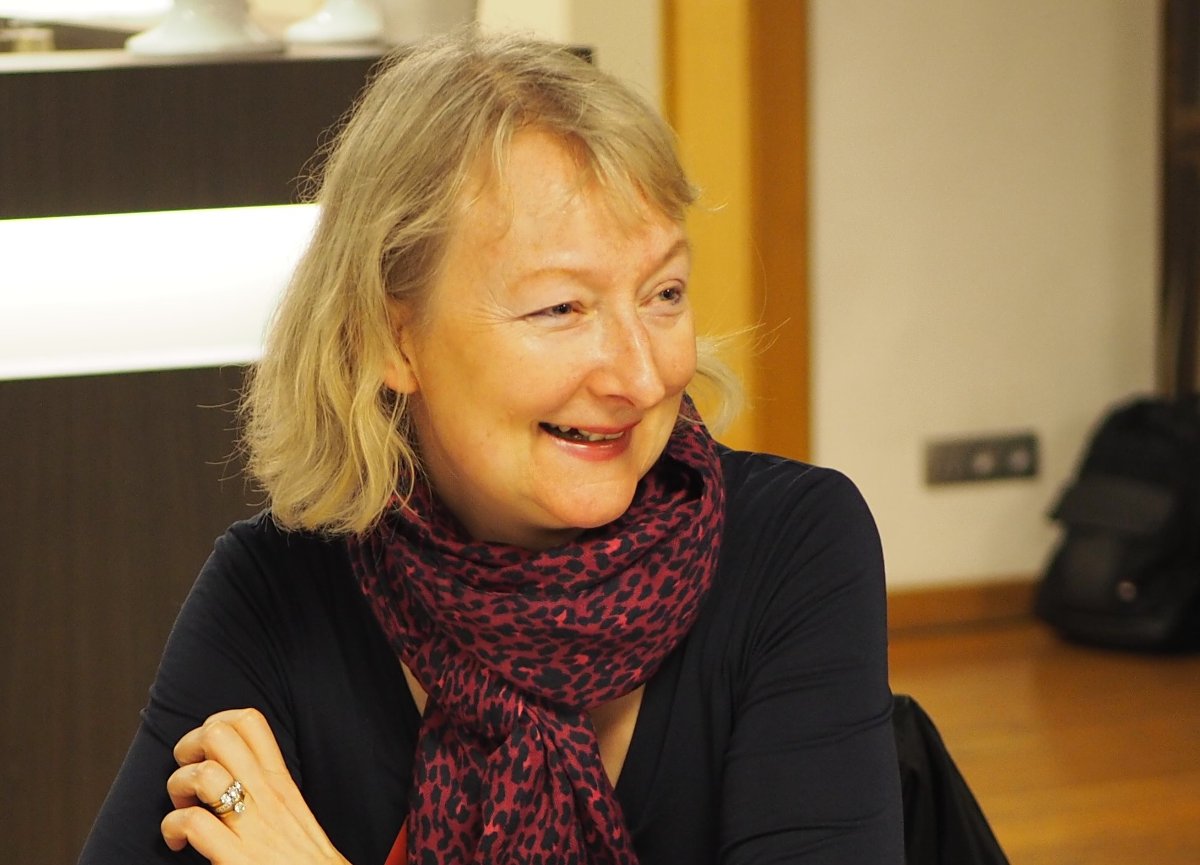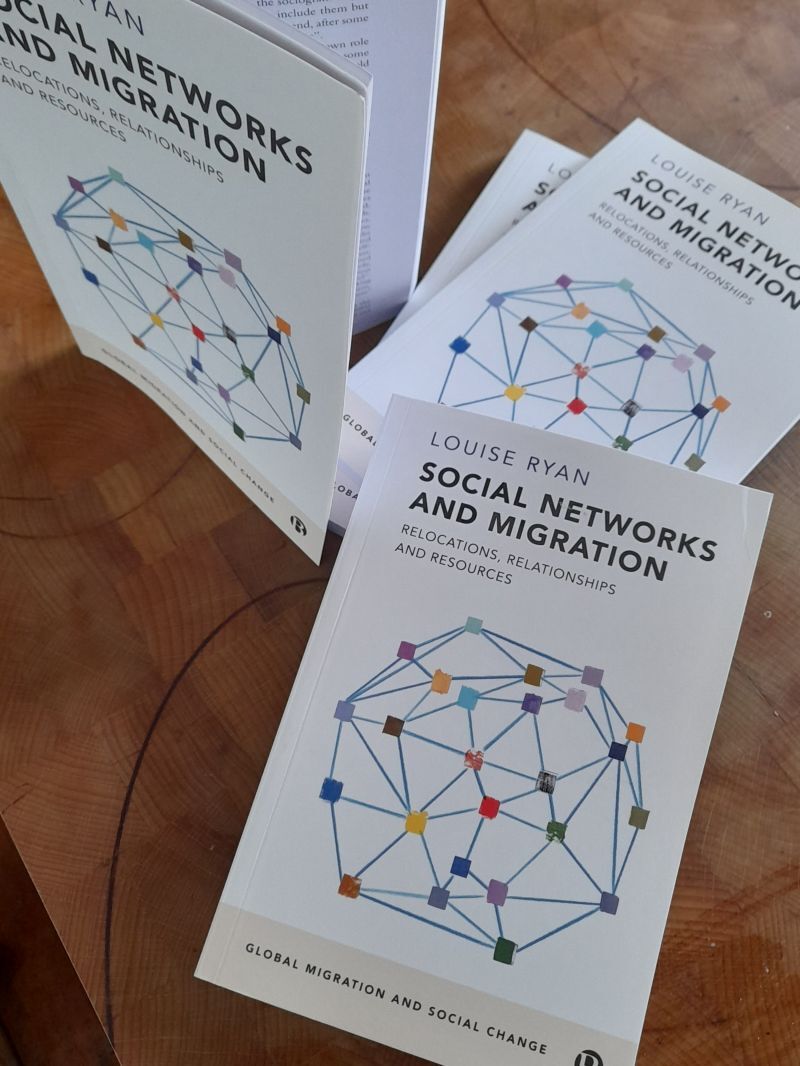Keynote speaker Prof. Ryan addresses contradictions inherent in migration rhetoric at RSU-organised Getaway Conference
Prof. Louise Ryan is a senior professor of sociology at London Metropolitan University and the Director of the Global Diversities and Inequalities Research Centre. She has been invited to be the keynote speaker at The Getaway Conference that will take place at Rīga Stradiņš University (RSU) on 10-11 October 2024. The conference examines the breaking, making and maintaining of social ties among what may be referred to as mobile professionals.

What's your understanding of the conference theme?
My work fits in very well as I analyse different experiences of mobility and, indeed, immobility. In recent years, there's been quite a lot of emphasis on mobility and people's capacity to move, but of course as we know, mobility is conditional and contingent upon different structural contexts and institutional frameworks. My research and the presentation I'll be giving at the conference is on refugees, in particular on the experiences of Afghan refugees in London.
What is the background for your research?
The context in which I'm working is that in many countries across Europe there is an obsession with migrants, with blaming migrants for all kinds of social problems. This is nothing new. We've seen that at various times in history, particularly at times of economic hardship, there's a search for blame and for scapegoats.
Migrants, outsiders, and minorities are always a very convenient scapegoat. Europe, unfortunately, has a very bad record of repeating this pattern. We are now at a moment in history where it is happening again, simultaneously in many different countries.
This has led to misinformation being spread on social media, which in turn led to the horrific riots aimed at immigrants and asylum seekers in Dublin last year, and in the UK this summer. Politicians have to take responsibility for these events. Politicians are using migration as an issue in order to cover up for their own failures to address wider social inequalities. Both in Ireland and in the UK there's a big housing crisis and it's easier to blame a housing crisis on migrants or refugees rather than admit that there has been political failure to provide affordable housing for decades.
What is something that you want to raise awareness of through your research?
What I find fascinating as a sociologist, is that scapegoating migration is happening parallel to an increased reliance on migration. We are looking at countries with ageing populations that do not have enough workers. I can take the UK as a prime example.
Since Brexit, the British Government has actually increased the number of legal migrants coming into the country!
We've seen the proliferation of a dazzling array of different legal routes for workers who often do very specific kinds of jobs. The care sector and the health service, for example, rely overwhelmingly on migrant workers. The government knows this, but at the very same time they are actively spouting a rhetoric about controlling migration, about bringing down numbers. This is a contradiction in terms and makes no sense economically, but rather is being done for political reasons.
One way for a government to show itself to be in control is by showing it is controlling migration. So how do you manage this total contradiction? You do it by focusing all the attention on one group of migrants, and that is, of course, the so-called illegal, the so-called undocumented migrants, or in the British case, those arriving in small boats on the South Coast of England. If you focus all attention on them, you can disguise the fact that overall legal migration to the UK is increasing at the government's own initiative. It is therefore no surprise that in the mind of the British public, the largest group of migrants coming into Britain are those arriving in small boats. This is utterly and absolutely untrue!
As a sociologist, I find this contradiction absolutely intriguing. It is important for us migration researchers to somehow try to inform the narrative. It's very difficult because we're really up against misinformation from politicians, from social media, etc., but at the same time, I think it behooves us morally and ethically to try to tell people that what they think about migration is actually wrong.
How do you convey your quite complex ideas and findings in a manageable, digestible way?
It is very difficult. Sociologists have a tendency to resist very simplistic labels, even if they are more easily digestible to the general public.
So how do we do try to get our message across? I think that particularly in relation to migration, it can just be about presenting people with the facts and numbers to make them rethink. In Britain, you can say that in 2023, approximately 800,0001 migrants came in on legal worker visas and around 29,0002 people came in small boats. These numbers highlight the contrast.
The other way to get people to react differently is often through stories. My research is very qualitative even though I'm talking about numbers. Working with colleagues on two projects, I focus on stories of Afghan individuals or families.
Conveying a larger story through that of one person can make the situation real in a way that lots of complicated analysis never could. It behooves us as researchers to find strategies and ways in which to communicate this, but it is not easy.
What are some messages these personal stories can help convey?
Initially, there was a lot of sympathy for the Afghans, like indeed for the Ukrainians, because of the way in which the story was first reported. With Ukraine, we saw Russia as this big, bad enemy invading a country and innocent women and children had to cross the border. It was the same with the Afghans. In that case, it was easy to convey the message of the bad Taliban. Everybody immediately has a negative association with that word.
In my research, I aim to highlight the contradictions within this sentiment. For instance, in August 2021, an Afghan who was evacuated by the British military and government often had luck on their side—they happened to be at the airport at just the right time to board a plane. We all remember those harrowing images of people clinging to planes as they took off from Kabul airport, tragically losing their lives. Now, a large proportion of people arriving in small boats off the coast of England are also Afghans. How do you explain to an Afghan whose sibling was evacuated in August 2021 and because of that has indefinite leave to remain, the right to work and study, free English classes, and accommodation, that they themselves—who might have been standing right beside them at the airport—didn’t make it onto the plane and are now receiving nothing after arriving on a small boat? Knowing their personal stories can therefore starkly illustrate how rigid immigration rules create contradictions and anomalies and the impact this has on human beings3.
What are some questions that you are particularly focused on within the Afghan community in London?
One of the things that I've been very interested in for a long time is employment and access to the labour market. Many of the Afghans who were evacuated were not “ordinary” poor people who could never have gotten to the airport in the first place. Many of the people who were evacuated tended to be the upper echelons of Afghan society: judges, lawyers, doctors, surgeons, and journalists etc. They were also in danger precisely because of their higher profile. I'm intrigued by people who used to be professors, judges, but who are now refugees. People who had big houses with cars and chauffeurs and servants. I'm looking at what being a refugee does to them psychologically. On a personal level, I try to imagine myself in that situation and consider what it would do to me. Being in my 50s, if I was unable to access the local labour market, I would feel like my career is over. Many of the people we are working with are in their 40s and 50s and are at the top of their careers who have lost everything. They are now in the UK as legal migrants meaning they can work and study, so in some ways they are privileged amongst refugees who don't all have those rights. My colleagues and I are looking at what strategies they use, particularly in terms of social networks.
Although you as a person have been mobile, you have been allowed to move, upon arrival your qualifications, your experience, your expertise have somehow got lost in the journey.
Describe the networks you are looking at.
These networks are something I've been writing about for many years, including in my recently published book Social Networks and Migration: Relocations, Relationships and Resources (2023). I'm really looking at how these networks work and who the connections are, what the ties within a network are.
Sometimes migrants/refugees/newly arrived people look for diasporic networks because they speak the same language. They get the immediate sense of being able to communicate at the most basic level. In terms of building a career, however, particularly if you are highly skilled, these diasporic networks may not necessarily have the right people to help you, because they themselves may not have that level of knowledge and expertise. You would then have to find the right people to advise, support, and guide you.

How do you try to translate your work into actual policy change?
Working with policy makers is so important. One of the recommendations that we're making concerns mentoring schemes. If you're an Afghan teacher, surgeon, or judge who has arrived in the UK, you may not know anyone else in your profession. It would be helpful if the government, agencies, or NGOs could recognise your skills and experience and help match you with relevant contacts.
Instead of leaving it to chance for you to find these connections on your own, organisations could step in and connect you with a legal firm in a specific administrative area.
For example, a senior lawyer could volunteer to mentor an Afghan lawyer for a set period, sharing local knowledge and information. This approach could be developed into a policy recommendation.
What do you hope to get out of the conference?
This is a coincidence, but just this morning I had a meeting with a group of researchers who are putting together a COST Action application. They were looking at the target countries that we would need to include. Latvia was one of those countries, and we were asked if anyone had contacts in those countries. I could jump in and say that I was going to Latvia and had contacts there. The COST application is looking at right to work, so about accessing labour markets, with a focus on Ukrainian women. One of the things I will now be doing very deliberately when I come to Latvia, is to talk to colleagues with that very specific opportunity in mind. Having a more focused discussion about a particular opportunity makes networking at conferences much more productive. It also gives a time frame for following up, so it doesn't just become promises of connecting that never come to happen. So yes, to answer your question, I'm coming with a mission!
1 https://migrationobservatory.ox.ac.uk/resources/briefings/l…
2 https://migrationobservatory.ox.ac.uk/resources/briefings/p…
3 Ryan, L., Lopez, M., & Dalceggio, A. (2024). Encountering the hostile environment: Recently arrived Afghan migrants in London. Critical Social Policy, 44(2), 242-262. (https://journals.sagepub.com/doi/full/10.1177/0261018323119…)
Related news
 RSU participates in the European University Association conferenceSustainable Development, For RSU Employees, Conferences, workshops, Research
RSU participates in the European University Association conferenceSustainable Development, For RSU Employees, Conferences, workshops, Research


